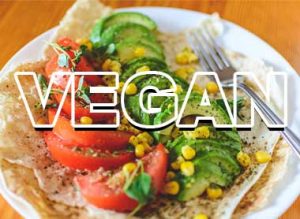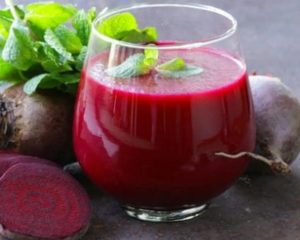
Vitamins are essential nutrients that the body needs to function properly. They play a critical role in maintaining good health, supporting the immune system, and preventing chronic diseases. As women age, their nutritional needs change, and they require certain vitamins in different amounts to support their health. In this context, it is important to understand which vitamins are particularly important for women over 40, as well as which foods are rich in these vitamins. Additionally, there are certain circumstances where a multivitamin or other supplement may be recommended to ensure that women are getting all the nutrients they need. This article will explore the most important vitamins for women over 40, the foods that are rich in these vitamins, and the circumstances in which a supplement may be necessary.
What are the most important vitamins for women over 40?
As women age, their nutritional needs change. Here are six of the most important vitamins for women over 40:
- Vitamin D: As we age, our bodies become less efficient at producing vitamin D from sunlight. Vitamin D is important for maintaining strong bones and may also help prevent certain types of cancer. Women over 40 should aim for at least 600-800 IU of vitamin D per day.
- Vitamin B12: Vitamin B12 is important for maintaining healthy nerve function and producing red blood cells. As we age, our bodies become less efficient at absorbing vitamin B12 from food. Women over 40 should aim for at least 2.4 micrograms of vitamin B12 per day.
- Vitamin E: Vitamin E is an antioxidant that helps protect against cell damage. It may also help prevent heart disease and some types of cancer. Women over 40 should aim for at least 15 milligrams of vitamin E per day.
- Vitamin C: Vitamin C is an antioxidant that helps protect against cell damage and is important for maintaining a healthy immune system. Women over 40 should aim for at least 75 milligrams of vitamin C per day.
- Vitamin A: Vitamin A is important for maintaining healthy skin, vision, and immune function. Women over 40 should aim for at least 700-900 micrograms of vitamin A per day.
- Vitamin K: Vitamin K is important for maintaining strong bones and may also help prevent heart disease. Women over 40 should aim for at least 90 micrograms of vitamin K per day.
It’s important to note that while vitamins are important for overall health, it’s best to get them from a balanced diet rather than relying on supplements. Consult with a healthcare professional to determine your specific nutritional needs.
What are the foods that are rich in these vitamins?
Here are some examples of foods that are rich in the six vitamins mentioned earlier:
- Vitamin D: Fatty fish, such as salmon or tuna, egg yolks, and fortified foods like milk, orange juice, and cereal.
- Vitamin B12: Animal products such as meat, fish, poultry, eggs, and dairy products.
- Vitamin E: Nuts and seeds, such as almonds, sunflower seeds, and hazelnuts, and vegetable oils, such as sunflower, safflower, and soybean oil.
- Vitamin C: Citrus fruits, such as oranges and grapefruits, strawberries, bell peppers, broccoli, and tomatoes.
- Vitamin A: Orange and yellow vegetables and fruits, such as sweet potatoes, carrots, pumpkin, cantaloupe, and mangoes, as well as leafy green vegetables like spinach.
- Vitamin K: Leafy green vegetables, such as kale, spinach, and collard greens, as well as broccoli, Brussels sprouts, and green beans.
Remember, the best way to get your daily dose of vitamins is by eating a varied and balanced diet that includes a wide range of nutrient-dense foods. If you have trouble meeting your nutritional needs through your diet, talk to a healthcare professional about whether a supplement might be necessary.

Should a 40 year old woman take a multivitamin?
Whether or not a 40-year-old woman should take a multivitamin depends on her individual circumstances. In general, a balanced diet that includes a variety of nutrient-dense foods can provide most of the vitamins and minerals that a person needs. However, certain factors can make it challenging to get all of the necessary nutrients from food alone.
For example, some people may have dietary restrictions or preferences that limit their food choices or make it difficult to consume enough of certain nutrients. Additionally, women who are pregnant or breastfeeding, have a medical condition that affects nutrient absorption, or take certain medications may need to supplement their diets with additional vitamins and minerals.
If you are unsure about whether you are getting all the nutrients you need from your diet, or if you have specific health concerns or medical conditions that affect nutrient absorption, it may be a good idea to talk to a healthcare professional about whether a multivitamin or other supplement might be appropriate for you. They can help you determine your individual nutritional needs and recommend an appropriate supplement if necessary.
What are the basic vitamins all women should take?
All women should aim to consume a balanced, nutrient-dense diet that provides all of the essential vitamins and minerals their bodies need. However, there are a few vitamins that are particularly important for women’s health:
- Folate: Folate, also known as folic acid, is important for women who are pregnant or trying to conceive, as it helps prevent birth defects in the baby’s brain and spine. Folate is also important for healthy red blood cell production. Women of childbearing age should aim for at least 400-800 micrograms of folate per day.
- Iron: Iron is important for healthy red blood cell production and preventing anemia. Women are at a higher risk of iron deficiency due to menstrual blood loss. Women should aim for at least 18 milligrams of iron per day.
- Calcium: Calcium is important for maintaining strong bones and preventing osteoporosis. Women are at a higher risk of osteoporosis as they age. Women should aim for at least 1,000-1,200 milligrams of calcium per day.
- Vitamin D: Vitamin D is important for maintaining strong bones and preventing osteoporosis. Women are also at a higher risk of vitamin D deficiency as they age. Women should aim for at least 600-800 IU of vitamin D per day.
- Vitamin B12: Vitamin B12 is important for maintaining healthy nerve function and producing red blood cells. As we age, our bodies become less efficient at absorbing vitamin B12 from food. Women should aim for at least 2.4 micrograms of vitamin B12 per day.
- Vitamin C: Vitamin C is an antioxidant that helps protect against cell damage and is important for maintaining a healthy immune system. Women should aim for at least 75 milligrams of vitamin C per day.
It’s important to note that these are just a few of the many vitamins and minerals that are important for women’s health. It’s best to get these nutrients from a balanced diet that includes a variety of nutrient-dense foods. If you have trouble meeting your nutritional needs through your diet, talk to a healthcare professional about whether a supplement might be necessary.
Conclusion
In conclusion, vitamins are essential nutrients that play a crucial role in maintaining good health and preventing chronic diseases. As women age, their nutritional needs change, and they require certain vitamins in different amounts to support their health. While a balanced diet that includes a variety of nutrient-dense foods is the best way to get the vitamins and minerals that the body needs, certain factors can make it challenging to get all of the necessary nutrients from food alone. In these cases, a healthcare professional may recommend a vitamin or mineral supplement to help fill any nutrient gaps. Women should always consult with their healthcare provider to determine their individual nutritional needs and whether a supplement is necessary.




